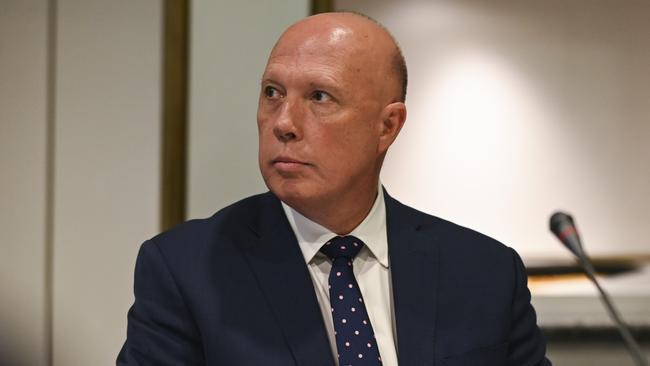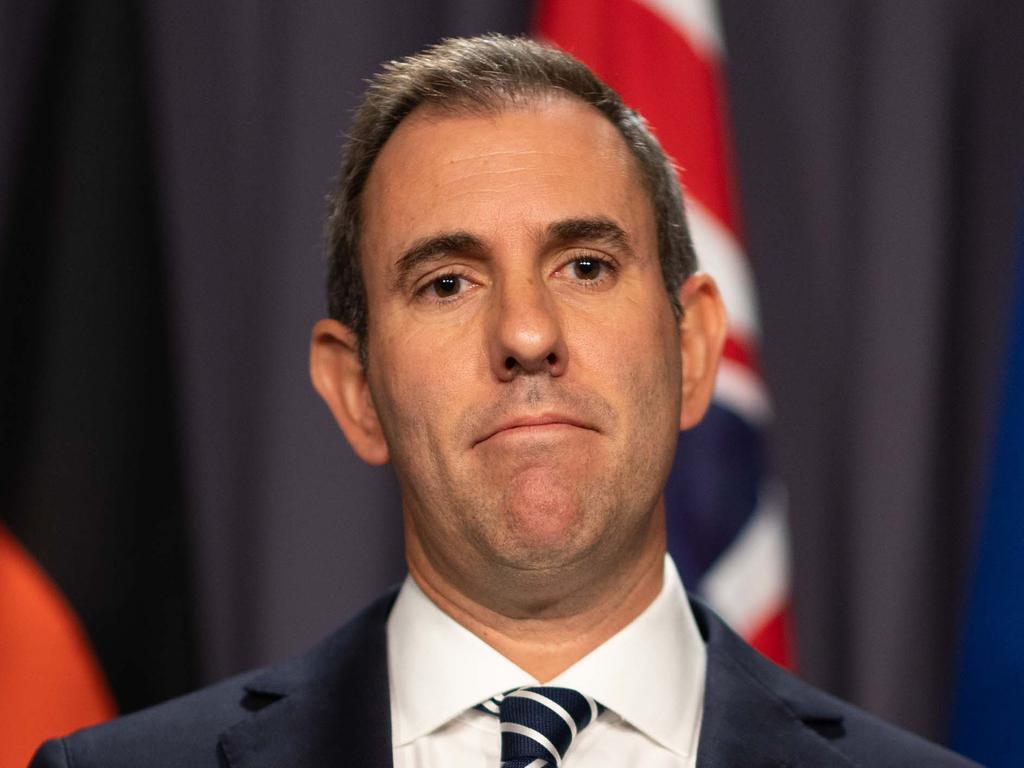
The unfunded long term liability to the members of this club plus lower paid public servants – all of whom joined the public service before June 30, 2005 (2004 for politicians) – is officially calculated at $300bn. But the assumptions behind that shortfall calculation are highly dubious and the real shortfall is between $500bn and $1 trillion.
Albanese plus Opposition Leader Peter Dutton were both elected to federal parliament before 2004 and so they and their spouses/partners are entitled to generous pensions indexed to the CPI for life.
The massive shortfall comes not so much from politicians and ordinary public servants but the highly-paid public servants who creamed the system.
The members of the ‘$10m club’ and others entitled to huge benefits have always defended their generous entitlements by stating that it was the parliament which set the entitlements and any change to them would be would be retrospective legislation and represent horrific injustice.

Enter Dr James Edward Chalmers who joined the parliament in 2013 – nine years after the bonanza politician rorts had been stopped.
But instead of blocking existing rorts in the public sector, he turned his attention to the private sector where he found that about 11,000 people had superannuation balances above $10m which he regarded as an abuse of the system albeit that they, like the public servants, had acted perfectly legally in taking up their entitlements.
His first plan was to limit the amount of funds any person could have in superannuation to $5m.
Leaving aside retrospectivity I thought that measure was fair but it would be totally unfair if the $10m dollar club benefits were untouched on the grounds that they were immune because it would represent respective action – exactly what was being applied to the equivalent private sector.
Then Chalmers got greedy and wanted to retrospectively lower the limit to $3m and in the process retrospectively change the whole nature of super in Australia by impacting up-and-coming savers.
Understandably there is now community revolt but that will become white hot once more people realise that retrospectivity is being applied to the private sector but not the public sector which is where the huge unfunded taxpayer liabilities exist.
Both the politicians’ and the public service superannuation entitlements are complex and there are infinite variations.

However, as a guide, a public servant who serves 30 years with the public service and contributed each year from tax-paid income of 10 per cent of salary will normally end up with a pension of around 70 per cent of their final average salary indexed to the CPI for life.
And if the public servant dies then their spouse/partner will receive 66 per cent of that pension again, indexed to the CPI.
The value of these CPI indexed entitlements have exploded in the new inflationary environment.
But it gets even better. If the spouse/partner dies and the public servant marries or partners again then the entitlement continues for the life of the second spouse/partner who may be much younger than the first one.
In former years gay people were not counted as spouses/partners but now that’s changed.
The pension rules for politicians the rules are even more complex because of the political process – but they are equally generous and once again the entitlements flow through to current and subsequent spouses/partners. And the entitlement to spouses/partners pension is 88 per cent, not 66 per cent.
When these generous entitlements were abandoned for politicians elected after 2004 and public servant appointed after 2005, the military were excluded.
Defence forces came under the same ambit just over 10 years later and the delay cost the Australian community some $50bn.
In the private sector superannuation is all about sums of money. People can theoretically use their lump sums and buy a pension from groups like Challenger.
But purchasing an indexed life pension based on final average salary that flows that through to spouses/ partners and even second spouses would be ridiculously expensive.
Entitlement to the $10m club is defined on the basis that the salary levels involved would require at least $10m to purchase a public servant-style entitlement.
For those in the top levels of the public service their pension entitlements are worth much more than $10m.
It’s true that the politicians and public servants don’t end up with a lump sum to pass through to their descendants but for those at the top the enormous incomes they are locking in are far more valuable – especially given the uncertainty in the share and property markets and longer life expectancies.
How is the problem fixed?
The most obvious answer is to apply the Chalmers retrospective precedent used for the private sector. Accordingly pension entitlements in the public sector cannot be worth more than $5m, $3m or whatever level Chalmers imposes on the private sector.
This will not affect ordinary public servants but will bring the highly-paid public servants back into line.
But those public servants like their equivalent in the private sector have sometimes accepted a lower salary an exchange for big superannuation/pension entitlements.
I think the answer is to duplicate what happened to Qantas executives when the company was privatised.
Qantas effectively froze the defined benefits.
That would still leave a huge pension but they would not break the nation.








Prime Minister Anthony Albanese, unlike his predecessor Scott Morrison, has joined the ranks of the ‘$10m club’ – the large number of former and current public servants and politicians who have government pension and superannuation entitlements that are worth more than $10m.